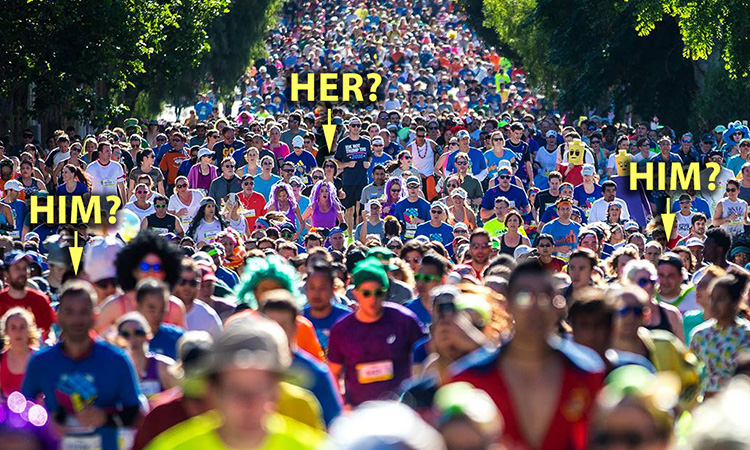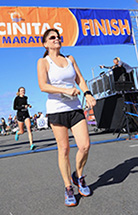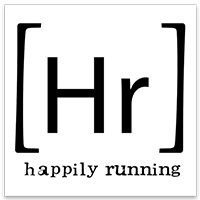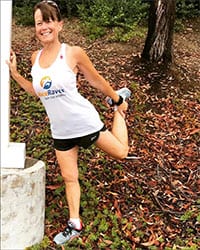
“First, we try to run faster. Then we try to run harder. Then we learn to accept ourselves and our limitations, and at last, we can appreciate the true joy and meaning of running.”
– Amby Burfoot, The Runners’ Guide to the Meaning of Life
Why do you race?
There are as many reasons to run as there are models of running shoes… but why do you race? And why do you race the distances that you do?
Do you love running 26.2 miles? What about 13.1? When you cross the finish line of a 5K, do you wonder whether you are missing something by not going farther?
When my running “career” started in the early 90s, there was no online community. I didn’t personally know anyone else who ran. The upside of this was that running was on my terms. How fast or how far I ran was based entirely on how I felt, how much time was available and the weather. I read Runner’s World and Running Times but truly didn’t think all the serious training ideas were meant for casual runners like me.
After three years of running local 5Ks and 10Ks, I joined a group to train for the Long Beach Marathon. Even then, our interactions were limited to Sunday mornings when we would run our miles, give each other some “good jobs” and be on our way until the next weekend. The group run leader did not offer other workout plans or race strategies such as fueling or hydrating.
 I finished that marathon and two more, slowly and with almost zero fuel due to lack of shared info. I was beat, I was discouraged, but mostly I was missing my race distances of choice: short and fast (fast for me, anyway). So for the next five years I happily ran 5Ks, 10Ks and the occasional half from San Diego up the coast to San Luis Obispo. I rarely finished higher than 7th or 8th in my age group, and we didn’t get finisher medals, but I loved time among other runners and never felt beat or “less than”. Instead, I felt satisfied and tired… in a good way.
I finished that marathon and two more, slowly and with almost zero fuel due to lack of shared info. I was beat, I was discouraged, but mostly I was missing my race distances of choice: short and fast (fast for me, anyway). So for the next five years I happily ran 5Ks, 10Ks and the occasional half from San Diego up the coast to San Luis Obispo. I rarely finished higher than 7th or 8th in my age group, and we didn’t get finisher medals, but I loved time among other runners and never felt beat or “less than”. Instead, I felt satisfied and tired… in a good way.
In 2000 after a move, I found running neighbors who were training for marathons and began to feel like I should be doing more. We would share a few weeknight runs, but then they would be off on Saturday long runs and I’d start to get that “less than” feeling. So, I ran another marathon… and instantly remembered why I’d stopped. I enjoyed and benefited from the training but wanted to strangle the race.
Enter, Social Media
In 2008, you all know what happened. I joined Facebook, a land where only wonderful things happened, everyone’s smiles were perfect and there was no shortage of accomplishments to be displayed. And I succumbed to the idea that I had to be “as good as” everyone else.
Since then, I’ve run six more marathons. I’ve received my RRCA coaching certification and am working toward my Level II certification. I’ve coached runners for every distance and watched a few go from having never run a mile to winning their age group. I’ve qualified for Boston three times and have won my age group in every distance except the marathon at least once. I’ll be running Chicago this year and Boston in 2020. No longer am I racing without support or vital information.
And yet today I realize that while I’ve since learned about fuel, proper pacing, negative splits, mindfulness and recovery, I still do not love running 26.2 miles. I have been running marathons only because I am afraid that if I don’t, I won’t be taken seriously. How could I consider myself a “serious” runner if I was only running half marathons or 5Ks?
Shorter distances like 5K and 10K give me a different kind of return on my investment. Even half marathons hold the promise of having enough gas left in the tank to turn on the afterburners in the last mile. An 18-mile long run feels good to me and that should be enough, FOR ME.
After 27 years of racing, the truth has set me free!
Today I am finally ready to run my own race for the rest of my running life, which might be even longer with this decision: I’m letting go of marathons after April 2020. Heck, we are all just trying to lace up and get out the door, so who has time to worry about or judge what another runner decides to do with their daily hour or two of freedom?
I’ve read such inspiring reviews of races on RaceRaves, reviews that get my heart pounding to go check them out for myself! The Columbia Gorge Half Marathon? Yes, thank you! The Bay to Breakers? I’m IN!
 I wonder, am I alone? Do you want to run marathons but worry you will fail? Or do you give something up so you can train for a long distance run because you have an idea it is expected of you?
I wonder, am I alone? Do you want to run marathons but worry you will fail? Or do you give something up so you can train for a long distance run because you have an idea it is expected of you?
Here’s the truth: with running you can’t fail, and nothing is expected of you except what you expect of yourself. Getting your shoes on, opening the door, stepping out and looking up the road to where you are headed is a win. It is not just enough, it is “more than”!
Deciding to run your first marathon is an opportunity to determine whether it brings you satisfaction and joy, and it may very well hook you. Deciding to run less can mean rediscovery of why you love it.
Someone I know recently referred to a day she didn’t run as a failure. Missing a day of running is not failure; it is just living. No one else is measuring us and there is no medal at the end, only what we gain from staying committed to this passion called running.
Our workouts, training plans and calendars filled with race dates are only the outlines of our running story. We lay them out each cycle and each week intending to hit our goal of gaining speed, endurance or mental toughness. Our complete running story, though, is made up of how we use those outlines to fill the pages.
The number of miles we run isn’t what qualifies us as “real” runners. People who run for pleasure and never race are real runners. People who practice a run/walk method are real runners. No apologies, qualifiers or quantifiers are necessary. If we pick up a book and discover it is not for us, we look for one that does elicit the desire to keep reading. Similarly, race distance is simply a matter of preference, and at the end of the race we hopefully feel happy and eager to do it again, or frustrated and eager to do it again. And that is a happy ending.
Why do you race?
Want to receive Coach Bette’s monthly column in your Inbox? Be sure to subscribe to our newsletter or sign up as a RaceRaves member (it’s free)! And read her most recent column here.
About our columnist:
 Bette Hagerty decided to run a 5K in 1992 after a few months of running around her neighborhood, using her car’s odometer to measure distances. When she found herself among a few hundred people talking about running, she knew she had found her community. Since then she has run several hundred races, from 5K to marathon distance and helped form two running groups.
Bette Hagerty decided to run a 5K in 1992 after a few months of running around her neighborhood, using her car’s odometer to measure distances. When she found herself among a few hundred people talking about running, she knew she had found her community. Since then she has run several hundred races, from 5K to marathon distance and helped form two running groups.
Bette is an RRCA Certified Running Coach and posts weekly Tuesday workouts on instagram as @BetteRunning. Her passions for running and writing have finally run into each other, and she looks forward to sharing her experiences and knowledge. She welcomes your glowing compliments at [email protected].
Other RaceRaves articles you’ll enjoy (trust us!):
9 Quick Picks for 2019
Runners Choice: Best Marathons in the U.S.
The three Rs of post-workout recovery
Best Bets for Boston Marathon Qualifying Races
Introducing your (smart) 50 States Map
Unconventional Races that dare to be different
And for more helpful articles, check out our blog!
Find this article informative? Please share it, and let others know RaceRaves is the premier online resource to DISCOVER, REVIEW & TRACK all their races and to CONNECT with other runners!
Great article, Coach Bette. Thank you for sharing your story, and for helping us to embrace ours! 🙂